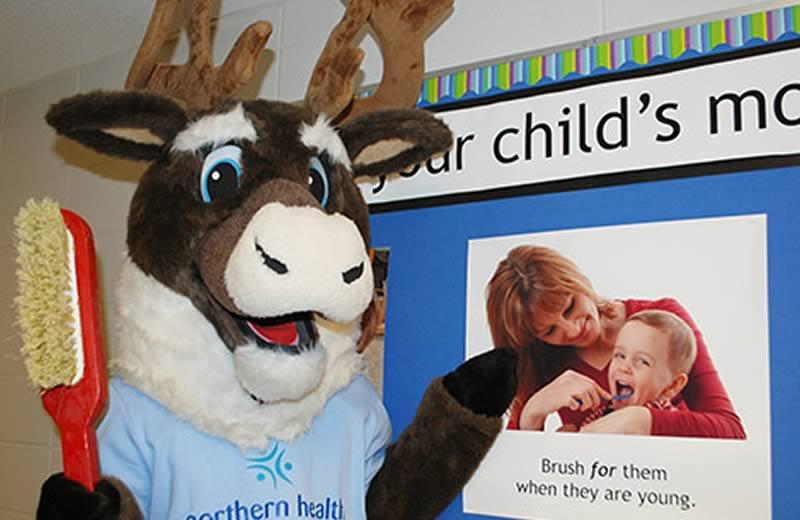They eventually fall out and are collected by the tooth fairy anyways, so why are baby teeth so important?
Healthy baby teeth are important for many reasons:
- Baby teeth hold the space for the replacement adult teeth.
- Baby molars will not fall out until your child is about 12 years old.
- Early loss of a baby tooth may cause the movement of the other teeth, possibly resulting in crowding or bite problems.
- Baby teeth are important for appearance, proper chewing of foods, and speech.
But, since those baby teeth are not meant to last a lifetime, their outer covering (enamel) is not as thick or hard as the enamel on adult teeth. The enamel in the first 18 months after a tooth erupts is fragile and can decay very quickly.
Why does this matter? Just like in adults, tooth decay in our kids may cause pain, infection, difficulties chewing, problems sleeping or concentrating, and poor self-esteem. Tooth decay is largely preventable. Health care providers, child care providers, and parents can all work together to spread healthy messages regarding oral care and we can all model behaviours that can lead to a reduction in tooth decay and oral health problems.
Keep your child's teeth healthy by:
- Brushing your child's teeth in the morning and before bed, starting as soon as those teeth erupt. Use a little smear of toothpaste that has fluoride in it.
- Do not put your child to bed with a bottle or, if you do, offer only water in the bottle.
- Help your child to learn to drink from an open cup (not a sippy cup). This can be used for small sips of water starting at 6 months and for milk starting between 9-12 months.
- Limit how often your child gets sticky, sugary foods and drinks. Children one year and older benefit from 3 meals and 2-3 snacks per day. These should be spaced 2-3 hours apart. Choose a variety of healthy foods that do not stick to the teeth.
- Make an appointment for your child's first dental appointment by their first birthday or about 6 months after their first tooth erupts.
- Lift your child's upper lip once a month to check for any whitish marks on the teeth which may be the start of decay.
- Avoid saliva sharing habits like using the same spoon.
- Parents should have any decay treated to reduce the chances of passing on the cavity causing bacteria to their child.














Comments